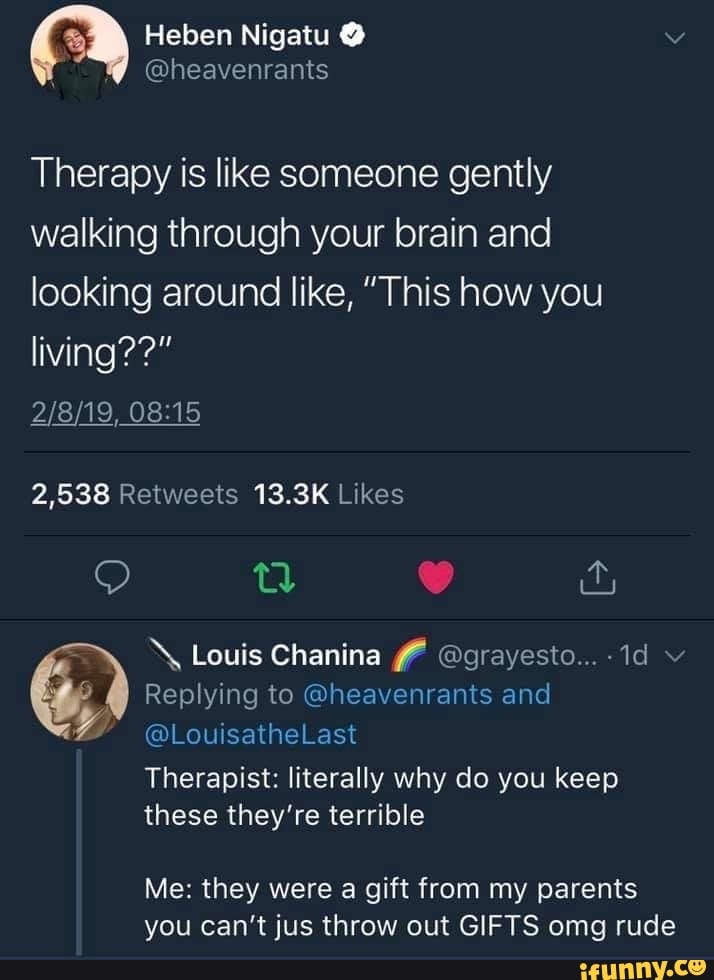Therapy
What really is therapy and what can I expect from it?
Therapy, also known as psychotherapy (therapy for the mind) or talk therapy, is a collaborative, confidential process with a trained mental health professional to explore and address challenges, improve emotional well-being, and achieve personal growth.
Similar to physical, speech, or massage therapy, where a practice is used to improve function and general wellness, psychotherapy is also an evidence-based practice aimed at improving and rehabilitating the mind’s function. The goal of therapy is to discuss openly thoughts, feelings, and experiences, which foster self-discovery, positive changes, and emotional relief.
Do you accept insurance?
Over the Rug is not contracted with any insurance company. This choice ensures our work together remains free from external influences, such as insurance-mandated diagnoses, limitations on frequency and longevity of treatment, restrictions on specialized approaches, and extensive documentation requirements. I deeply value your confidentiality and autonomy, so I work privately and independently. I understand that insurance gives mental healthcare access to many, and I would love to refer you to colleagues who are taking insurance.
I provide superbills, which are invoices for you to send to your insurance for reimbursement. Rates of reimbursement may differ based on your coverage.
Is therapy only for mental health disorders?
No, therapy is for everyone. Therapy is helpful for personal development, solving relationship issues, stress and anxiety management, and coping with life’s challenges. You do not need to have a disorder to see a therapist. You simply need to be human.
How much do you charge?
Therapy is a life-long investment you make in yourself. Individual sessions start at $200 and are 45 minutes long. Couples and family therapy start at $250 and are 50 minutes long. Please reach out for availability or referrals.
Client and Therapy
How long will therapy last?
The duration of therapy varies based on factors like your goals, symptom severity, and the duration of symptoms. For processing a single traumatic event with Accelerated Resolution Therapy, six weeks may be sufficient. Enhancing emotional intelligence and learning new coping skills might take a few months while diving into your history could extend to a year or more.
I recommend starting with weekly sessions, dropping to biweekly once you start making progress, then monthly, and finally graduating!
Saying goodbye to me as your therapist is the last step of our journey! As you start to feel more confident, peaceful, and empowered, I expect our time together to come to a close. We will always be connected, and even after you graduate therapy, you can come back if needed or simply have a yearly check-up with me.
What should I expect from my first session?
Before our first session, I will send you an email that links you to paperwork and questionnaires to fill out. The paperwork will request your basic information and goals for therapy, and you will need to sign informed consent and privacy practices documents electronically. During our first session, I will briefly go over documentation, answer any of your questions, and spend time learning about your story, reasons for seeking therapy, and creating a therapeutic goal.
Is it normal to feel worse before feeling better in therapy?
Yes, it is common to experience a temporary increase in distress as we initially explore your history, experiences, and emotional wounds. Therapists are trained to help manage this process and navigate the intensity of feelings. As you work through it with your therapist, you will experience relief and improved well-being.
How do I pay for sessions?
I use Ivy Pay, which is a secure, HIPAA compliant payment platform. You will provide me with your phone number, and I will enter it into the app. Ivy Pay then texts you a secure link, requesting you to enter your credit card information. You will approve the first charge, and all the following sessions will be charged directly to your stored card.
The Therapist
What is your professional training and experience?
Are my issues boring compared to those of your other clients?
Do you ever get tired of listening to problems all the time?
No, because I don’t see my clients as problems. I know they experience distress, and I am here to help them find the relief and support they deserve. I look forward to our time together, where I can learn about them, listen to their perspective, and help them stand confidently in their abilities. It’s such an honor to be welcomed into my client’s story, and I really love being a therapist!
Since you’re a therapist, do you have a happy life?
I really love my life, and there’s a lot of beauty in it, but I wouldn’t label my whole life as “happy” or any other emotion. I think a balanced life, which I have worked hard to have, includes the highs and lows of human existence and the full spectrum of feelings. Some days, I’m grieving; some days, I’m rejoicing; some days, I’m content. I lead by example and can take my clients far into healing because I have first walked that path.
Favorite Tweet?

